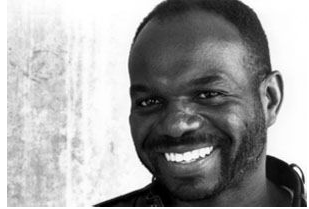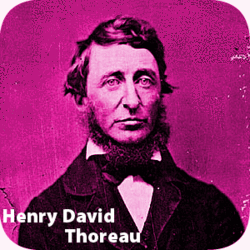A Filipino prison re-enacts Michael Jackson’s "Thriller Video."
One of the strangest things I’ve seen of late . . .
All posts by Dan Vera
Great Out Music in D.C.
 I’ve been meaning to blog about the amazing night of folk music we enjoyed here in Washington on Wednesday night. Held at Solly’s on U Street and billed as "Out With It – A Night of Out Guys With Guitars" it featured the song stylings (who came up with that phrase?!?!) of Eric Himan, Tom Goss and Jon Bozeman.
I’ve been meaning to blog about the amazing night of folk music we enjoyed here in Washington on Wednesday night. Held at Solly’s on U Street and billed as "Out With It – A Night of Out Guys With Guitars" it featured the song stylings (who came up with that phrase?!?!) of Eric Himan, Tom Goss and Jon Bozeman.
We got there about an hour before the upstairs performance space opened and sat at the bar downstairs. We didn’t know how many folks would show up because it was a Gay folk concert and … well, you know the old saw about "Gay men are only into dance music blah blah blah." We hadn’t eaten dinner so, while Pete and Lyman drank at the bar, I walked over to a great Peruvian chicken place across the street and grabbed some takeout. By the time I got back (about 20 minutes) the bar was packed with guys waiting for the concert to start. They soon opened the doors and we went upstairs for the show.
 Jon Bozeman was up first. From New York, he’d met Eric Himan at an environmental festival a while back and they, along with Goss, cooked up this idea for a night of Gay male folk music. Bozeman’s work is just lovely. His songs have some great wordplay and I especially loved a love song he wrote called "One to One" (on his latest cd). There was another great "fuck you"-post breakup song called "Take the Best of Me" (I believe that’s the title?) Bozeman did nice yeoman’s work on a Damian Rice cover before sharing a few more of his own compositions. These included a clap-along acapella song titled "Sexy Professor" — written for every cute professor you had in college. Other songs I enjoyed included "I Can’t Sleep" and the rollicking "To No Conclusions." Another stand out was a song called "Lonely Drinker" that Bozeman explained was written before he came of age. In it he imagines what it’d be like to finally gain admission to the bar. I think we’ve all been there before and it was interesting to sort of time travel back to that period. I can still recall the revelation of my first night at a Gay bar. It was Whitmanic for me to be surrounded by all these other men just like me. That seems a million miles away today but Bozeman sparked the memory again with this song from the other side of the entrance doors.
Jon Bozeman was up first. From New York, he’d met Eric Himan at an environmental festival a while back and they, along with Goss, cooked up this idea for a night of Gay male folk music. Bozeman’s work is just lovely. His songs have some great wordplay and I especially loved a love song he wrote called "One to One" (on his latest cd). There was another great "fuck you"-post breakup song called "Take the Best of Me" (I believe that’s the title?) Bozeman did nice yeoman’s work on a Damian Rice cover before sharing a few more of his own compositions. These included a clap-along acapella song titled "Sexy Professor" — written for every cute professor you had in college. Other songs I enjoyed included "I Can’t Sleep" and the rollicking "To No Conclusions." Another stand out was a song called "Lonely Drinker" that Bozeman explained was written before he came of age. In it he imagines what it’d be like to finally gain admission to the bar. I think we’ve all been there before and it was interesting to sort of time travel back to that period. I can still recall the revelation of my first night at a Gay bar. It was Whitmanic for me to be surrounded by all these other men just like me. That seems a million miles away today but Bozeman sparked the memory again with this song from the other side of the entrance doors.
I have to say that I enjoyed every one of these artists but somehow Bozeman was the only one who didn’t leave me wondering about influences. His voice, which was flawless, is truly his own and I delighted in hearing someone well on his way to creating some great music. He has two discs out, one a shiny packaged thing for $10 and a great live cd done in consummate DIY style for the bargain price of $5. I actually picked up the latter because it had that love song that so moved me.
 After a short break Tom Goss got the crowd going again with a lively set of original music and a few covers. Goss’s guitar work was really impressive and intricately thought out. The whole set was very high energy and as a performer Goss makes a full body job out of it. He was dancing as he performed, and although a bit distracting at times, it spoke to the infectious tone of most of his songs. His sound seems very indebted to Dave Matthews (at least to my ears and my tablemates) and he certainly shares that driving sound in his compositions. He tended to chat more with the crowd and worked hard to build a connection with the room. There was an interesting song he riddled the crowd with ("what’s this next song about? Guess.") Turns out the song was about wrestling (seems one of the interesting chestnuts about his past, along with seminary training for the Catholic priesthood, was his being a big wrestler. I very much enjoyed a song he wrote for his once-AWOL brother that turned into a great anti-war, anti-Bush song, (by way of a defense of his little brother) — "He knows your game is lies." Other highlights included a song called In the Morning Sun and a song written during his period of celibacy titled (tongue planted firmly in cheek?) "Come Around."
After a short break Tom Goss got the crowd going again with a lively set of original music and a few covers. Goss’s guitar work was really impressive and intricately thought out. The whole set was very high energy and as a performer Goss makes a full body job out of it. He was dancing as he performed, and although a bit distracting at times, it spoke to the infectious tone of most of his songs. His sound seems very indebted to Dave Matthews (at least to my ears and my tablemates) and he certainly shares that driving sound in his compositions. He tended to chat more with the crowd and worked hard to build a connection with the room. There was an interesting song he riddled the crowd with ("what’s this next song about? Guess.") Turns out the song was about wrestling (seems one of the interesting chestnuts about his past, along with seminary training for the Catholic priesthood, was his being a big wrestler. I very much enjoyed a song he wrote for his once-AWOL brother that turned into a great anti-war, anti-Bush song, (by way of a defense of his little brother) — "He knows your game is lies." Other highlights included a song called In the Morning Sun and a song written during his period of celibacy titled (tongue planted firmly in cheek?) "Come Around."
The local mind behind setting this gig up, Goss clearly has the chops for a concert a delicious snarl of a voice. That said I would’ve appreciated hearing more of his piano based compositions (he sang one piece he described as his "Gay anthem" on a keyboard — a great line: "If the devil’s in each touch, I’ll greet each flame").
So far the night was two for two in pure delight.
 And then Eric Himan took the stage. He started with a few minutes of a blistering bit of guitar work that just got the crowd going. I mean it was a nice little rumble, sort of dirty bluesy Claptony riffing that just warned everyone in the audience to prepare for some serious rollicking fun. He did not let us down. By way of brief introduction he explained that he’d been touring and doing music for the last 4 1/2 years and he’d always wanted to experience what he had that night.. a room full of Gay men (okay there were a few women but it was like 98% Gay men in the crowd). He shared that he’d played over the years in Lesbian clubs and at festivals and while the fans were appreciative, the Lesbians would say, "but you’re a guy?" and then he shared the old saw he heard over and over again… how Gay men don’t listen to folk music. But here he was standing in front of a very large, standing room only crowd of very appreciative hungry Gay men ready for folk music.
And then Eric Himan took the stage. He started with a few minutes of a blistering bit of guitar work that just got the crowd going. I mean it was a nice little rumble, sort of dirty bluesy Claptony riffing that just warned everyone in the audience to prepare for some serious rollicking fun. He did not let us down. By way of brief introduction he explained that he’d been touring and doing music for the last 4 1/2 years and he’d always wanted to experience what he had that night.. a room full of Gay men (okay there were a few women but it was like 98% Gay men in the crowd). He shared that he’d played over the years in Lesbian clubs and at festivals and while the fans were appreciative, the Lesbians would say, "but you’re a guy?" and then he shared the old saw he heard over and over again… how Gay men don’t listen to folk music. But here he was standing in front of a very large, standing room only crowd of very appreciative hungry Gay men ready for folk music.
What to say about Himan’s set. He floored us over and over again. Beginning with a great song he said he wrote for all the anti-Gay protestors who show up at all the Pride Festivals he attends. The piece was so funny and elicited some of the most enthusiastic clapping of the evening. He told me later it would be on the next cd he’s putting out (Himan puts out a disc a year it seems — he’s that productive!). He played a very energetic cover of Dolly Parton’s "Jolene" that had the crowd almost singing along in places. Himan’s influences seem very much in the Tracy Chapman vein. Something about his playing and singing. That’s extremely fortunate for his listeners because it puts him on footing to tackle some very difficult material. He powerfully  covered Patti Griffin’s song "Tony" in memory of a Gay high school friend who’d committed suicide. He had a great slow song about weakness — thinking about an ex after you’ve broken up with him. Another song "White Horse" about friends waiting to be "rescued" by a knight on a white horse. A very funny song called "Heart Clean" written for guys who don’t get the message when they constantly hit on you in bars. Then there was the very funny song about falling for Bartenders that had some very witty word play. There wasn’t a misfire in the entire set. It was all on and the guitar playing and the singing just perfect. He gave a great encore in the form of his own recasting of Nina Simone’s "Nobody Wants You When You’re Down & Out." I love Simone and know that recording very, very well, but I daresay Himan reformats it in a way that leaves it unrecognizable while so very enjoyable. I would’ve loved to have listened to that take one more time to see what sorcery he’d just done.
covered Patti Griffin’s song "Tony" in memory of a Gay high school friend who’d committed suicide. He had a great slow song about weakness — thinking about an ex after you’ve broken up with him. Another song "White Horse" about friends waiting to be "rescued" by a knight on a white horse. A very funny song called "Heart Clean" written for guys who don’t get the message when they constantly hit on you in bars. Then there was the very funny song about falling for Bartenders that had some very witty word play. There wasn’t a misfire in the entire set. It was all on and the guitar playing and the singing just perfect. He gave a great encore in the form of his own recasting of Nina Simone’s "Nobody Wants You When You’re Down & Out." I love Simone and know that recording very, very well, but I daresay Himan reformats it in a way that leaves it unrecognizable while so very enjoyable. I would’ve loved to have listened to that take one more time to see what sorcery he’d just done.
A wonderful evening. May there be many more to come. Till then, visit their websites, find out when they’re coming to a town near you, visit their myspaces and listen to their music and support them by buying some of their stuff. Keep the love and good music going.
Websites:
Here’s a Himan Youtube to give you a taste:
Gay Wisdom – Tongues Untied – 7/18/07
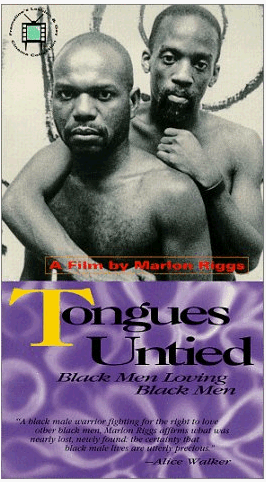 On this day in 1991, the groundbreaking film on Black Gay experience, Tongues Untied, was broadcast on national television in the United States. The director Marlon Riggs stated that the piece was created to
On this day in 1991, the groundbreaking film on Black Gay experience, Tongues Untied, was broadcast on national television in the United States. The director Marlon Riggs stated that the piece was created to
"…shatter the nation’s brutalising silence on matters of sexual and racial difference. [Tongues Untied] is partly about community-building. It’s an affirmation of some of the things that we as black Gay men take for granted. For example, lots of people snap. They snap on every syllable, and they don’t think about it. You can go from Mississippi to California to New York and this cultural form will be recognized-there will be a response. Some people are ashamed about snap because they look at it and think, ‘Oh, we know he’s a Gay man.’ Yet, snap is also a form of resistance, a form of saying, ‘Yes, I’m different and I’m also proud of it.’"
The national broadcast ignited a firestorm among the conservative Religious Right because of the film’s focus on Gay sexuality and its funding through a National Endowment for the Arts grant. Jesse Helms railed against the film from the floor of the U.S. Senate mistitling the film "Tongues United." Months later Patrick Buchanan, who was running against the first George Bush for the presidential nomination, cited "Tongues Untied" as an example of how President Bush was using taxpayer’s money to fund "pornographic art." He featured excerpts from the film in his political campaign commercials, curiously editing out any images of Black Gay men.
The Gay theorist and film critic Vito Russo wrote that "Usually, politically and socially admirable films fall short of the mark in the aesthetics department. They are praised more for their good intentions…Marlon Riggs has created that rarest of birds — a brilliant, innovative work of art that delivers a knock-out political punch." The film featured poetic and visual segments including the work of Essex Hemphill, Brian Freeman, Joseph Beam and many others.
The film would go on to win countless awards and accolades including Best Documentary Award at the Berlin International Film Festival, Best Independent Experimental Work by the Los Angeles Film Critics and Best Video at the New York Documentary Film Festival.
<<<<~~>>>>>
Today’s Gay Wisdom comes from Marlon Riggs:
"Frankly, with Tongues Untied if white heterosexuals don’t understand the reasons why black people are angry and just consider this piece militant, then so be it. I’m not going to take time to justify this for people for whom this experience is totally alien. Tongues Untied is an affirmation of the feelings and experiences of black Gay men, made for them by a black Gay man, or actually by black Gay men because the piece has a number of voices. If others understand, fine, but making sure everyone understands was not my prerequisite in making this."
— Marlon Riggs
"(The Christian Right says) Bring back the melting pot. Restore ‘traditional values.’ Re-institute prayer in schools. Preserve the primacy of Western civilization (the only one that matters anyway). And not least, protect that critical bedrock of American greatness: ‘the American family’ Such pronouncements reveal an intense, even pathological desire to perpetuate a thoroughly obsolete myth of America, and through this, a repressively orthodox system of sociocultural entitlement."
— Marlon Riggs
“My struggle has allowed me to transcend that sense of shame and stigma identified with my being a black Gay man. Having come through that fire, they can’t touch me.” – Marlon T. Riggs
Read a great interview with Marlon Riggs titled "Listen to the Heartbeat" here.
~ ~ ~
This entry was also this day’s Gay Wisdom email.
Sign up today to get our emails on Gay History and Wisdom!
Bill Richardson’s and the Use of Maricon
Some of you may or may not have heard the flap about New Mexico governor Bill Richardson’s using the word "maricon" a few months ago on Don Imus’ show.
The clip is here:
Imus asks Governor Richardson if he agrees that "Bernard," that’s Imus’ sidekick, is a "maricon." Now Imus knows exactly what he’s doing. They’re both from the same part of the country and they think they’re having a cool little exchange. He knows that Richardson knows that maricon means "faggot" in the Spanish they both grew up around. Imus also knows that most listeners to his show have no idea what the phrase is. You notice neither of them defines the term for their listening public. Imus launches the idea and Richardson, you’ll notice he actually jumps at it. Actually, Richardson goes FURTHER. Imus just asks Richardson to answer yes or no. Richardson sort of enjoys saying it, calling Bernardo un maricon. There is NO hesitation in Richardson’s reply. I mean he’s not even thinking this is problematic. Imus and Richardson are playing on a keen perception that most listeners won’t know what the word is.
This would seem to be Richardson’s macaca moment. He, like Senator Allen, knew they were hurling an epithet. But frankly, in my opinion Richardson’s is probably worse. Because Allen was using a very obscure phrase while Richardson was using a term that anyone who grew up speaking Spanish recognizes it for what it is. I am pretty sure that people have died for using that term of disparagement. That people have had their masculinity challenged with that term or killed people for being "un maricon."
Richardson’s non-apology just exacerbates the situation. He claimed that when he was growing up the term "maricon" was a neutral term, not good or bad, it just meant "gay." This is such bullshit it staggers the senses.
Now I’ve been assured that Richardson has a great track record on LGBT rights. All I’ve heard in detail is that he added gay and lesbian and transgender to the Hate Crimes bill in New Mexico. All well and good. [Although may I add that if *that’s* your great accomplishment for LGBT rights, — the ability to have our murders by haters labeled for what they are — than the bar is set really, really, really low in this country].
There are some gay Latino bloggers writing about this and hopefully this will get the coverage it deserves. Because so far, it seems the humanity of gay people seems pretty low on the totem pole in this whole sad exchange. It hasn’t received much press at all.
Can I also express how personally wounding it is that the first Latino politician of some stature, a credible (if not financially viable) candidate for the presidency has to reveal himself to be so grossly out of touch to find this acceptable. I haven’t felt this distressed and disgusted since Alberto Gonzalez was trotted out as the "First Latino/Hispanic Attorney General." Double Sigh.
Gay Wisdom – Arenas, Antinous & Kushner
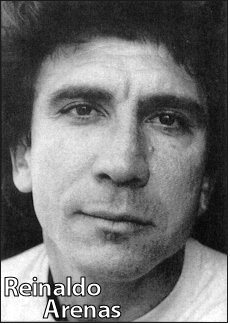 Gay Wisdom – Arenas, Antinous & Kushner
Gay Wisdom – Arenas, Antinous & Kushner
THIS DAY IN GAY HISTORY
Today is the birthday of Emperor Hadrian’s great love Antinous (110).
Today is also the birthday of Cuban poet, novelist & memoirist Reinaldo Arenas (July 16, 1943 – December 7, 1990. Most known for his memoir Before Night Falls, about his childhood and life in Cuba, Arenas was also the author of over twenty books including his Pentagonia, a series of books detailing the secret history of post-revolutionary Cuba. He emigrated to the United States in 1980 during the Mariel boatlife and lived in Miami for a short time before settling permanently in New York City.
Today is also the birthday of the great playwright Tony Kushner (1956) playwright Angels In America series.
<<<<~~>>>>>
TODAY’S GAY WISDOM
Today’s gay wisdom comes from Tony Kushner and Reinaldo Arenas:
"Mine is not an obedient writing. I think that literature as any art has to be irreverent. And in a totalitarian system irreverence is punished." Reinaldo Arenas
"Now, needless to say, after ten years, I have realised that an exile has no place anywhere, because there is no place, because the place where we started to dream, where we discovered the natural world around us, read our first book, loved for the first time, is a ghost, the shadow of someone who never achieves full reality. I ceased to exist when I went into exile; I started to run away from myself." Reinaldo Arenas, Before Night Falls
"Well, I write and survive. I am a dissident." – Reinaldo Arenas
Here’s a great little film featuring Reinaldo Arenas and those who knew him.
This disease will be the end of many of us, but not nearly all. And the dead will be commemorated, and we’ll struggle on with the living. And we are not going away. We won’t die secret deaths anymore.. The world only spins forward. We will be citizens. The time has come.
Bye now. You are fabulous each and everyone. And I bless you. More life. The great work begins.
Tony Kushner, Angels In America Part II – Perestroika
~ ~ ~
This entry was also this day’s Gay Wisdom email.
Sign up today to get our emails on Gay History and Wisdom!
The Capitol Hill Crunch…
…Of Rightwing Nutbars
In the off chance you’ve been lulled into forgetting about the atomic level nutbars out there, please check out this video of a press conference held on Capitol Hill yesterday. Hats off to People For The American Way’s Right Wing Watch for recording this and disseminating this.
These guys are more fixated on gay sex then most gay guys I know. And the one minister who cites a laundry list of intra-species sex partners seems to be revealing alot about his own sick twisted subconscious. I wouldn’t be surprised if the grass they were all standing on was withered and dead after they were finished.
Gay Wisdom – Thoreau
Today is the birthday of naturalist and transcendentalist writer Henry David Thoreau (born 1817). Famous for his writings Walden and Civil Disobedience, historians such as Jonathan Ned Katz have written about Thoreau’s deep attachments to male friends throughout his life.
Like Whitman and Emerson, much of Thoreau’s meditations on the higher meaning of male friendships can be found in his writing, specifically Thoreau’s notebooks which he kept throughout his life.
From Thoreau’s Notebooks:
[Nov. 5, 1839]
These young buds of manhood in the streets are like buttercups in the meadows, —surrendered to nature as they.
On June 17, 1839, Edmund Sewall of Scituate visited Concord for a week. After five days of sailing and hiking with Edmund, the twenty-two-year- old Thoreau fell in love with him, writing in his journal:
[June 22, 1839] Saturday. I have within the last few days come into contact with a pure, uncompromising spirit, that is somewhere wandering in the atmosphere, but settles not positively anywhere. . . . Such [spirits] it is impossible not to love; still is their loveliness, as it were, independent of them, so that you seem not to lose it when they are absent, for when they are near it is like an invisible presence which attends you.
Two days later, after Edmund’s departure, Thoreau writes a love poem.
- [June 24, 1839]
- Sympathy
- Lately, alas, I knew a gentle boy,
- Whose features all were cast in Virtue’s mould,
- As one she had designed for Beauty’s toy,
- But after manned him for her own stronghold.
- On every side he open was as day,
- That you might see no lack of strength within,
- For walls and ports do only serve alway
- For a pretense to feebleness and sin.
- Say not that Caesar was victorious,
- With toil and strife who stormed the House of Fame,
- In other sense this youth was glorious,
- Himself a kingdom wheresoe’er he came.
- No strength went out to get him victory,
- When all was income of its own accord;
- For where he went none other was to see,
- But all were parcel of their noble lord.
- He forayed like the subtile haze of summer,
- That stilly shows fresh landscapes to our eyes,
- And revolutions works without a murmur,
- Or rustling of a leaf beneath the skies..
- So was I taken unawares by this,
- I quite forgot my homage to confess;
- Yet now am forced to know, though hard it is,
- I might have loved him had I loved him less.
- Each moment as we nearer drew to each,
- A stern respect withheld us farther yet,
- So that we seemed beyond each other’s reach,
- And less acquainted than when first we met.
- We two were one while we did sympathize,
- So could we not the simplest bargain drive;
- And what avails it now that we are wise,
- If absence doth this doubleness contrive?
- Eternity may not the chance repeat,
- But I must tread my single way alone,
- In sad remembrance that we once did meet,
- And know that bliss irrevocably gone.
- The spheres henceforth my elegy shall sing,
- For elegy has other subject none;
- Each strain of music in my ears shall ring
- Knell of departure from that other one.
- Make haste and celebrate my tragedy;
- With fitting strain resound ye woods and fields;
- Sorrow is dearer in such case to me
- Than all the joys other occasion yields.
- ____________
_________ __ - Is’t then too late the damage to repair?
- Distance, forsooth, from my weak grasp hath reft
- The empty husk, and clutched the useless tare,
- But in my hands the wheat and kernel left.
- If I but love that virtue which he is,
- Though it be scented in the morning air,
- Still shall we be truest acquaintances,
- Nor mortals know a sympathy more rare.
-
from Jonathan Ned Katz’s Gay American History, Meridian, 1992. pp. 481-494
~ ~ ~
This entry was also this day’s Gay Wisdom email.
Sign up today to get our emails on Gay History and Wisdom!
Gay Wisdom – Hadrian, Proust & Rofes
This entry was also this day’s Gay Wisdom email.
| / / | | / /THIS DAY IN GAY HISTORY
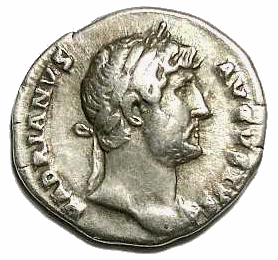 On this date in the year 138 BCE, the Roman Emperor Hadrian, (b. 76) died. On a visit to Claudiopolis to survey damage from a recent earthquake and to dispense his largesse, Hadrian met the beautiful Antinous, a young boy who was destined to become the emperor’s "eromenos" — his beloved. Sources say nothing about when Hadrian met Antinous, however, there are depictions of Antinous that shows him as an exquisitely beautiful man of 20 or so. As this was shortly before Antinous’s drowning in 130 Antinous would more likely have been a youth of 13 or 14. Antinous may have been sent to Rome to be trained as page to serve the emperor and there rose to the status of imperial favorite. However it happened, he became Hadrian’s lifetime love, and upon his mysterious death by drowning in the Nile, spawned a rival religious movement to the early Christians, that also focused on a martyred youth, dying on behalf of the people, and providing restoration to life. Hadrian was grief struck and ordered cities to be named after the boy, medals struck with his effigy, and statues erected to him in all parts of the empire. Temples were built for his worship in Bithynia, Mantineia in Arcadia, and Athens; festivals celebrated in his honor and oracles delivered in his name. The city of Antinoöpolis or Antinoe was founded on the ruins of Besa where he died.
On this date in the year 138 BCE, the Roman Emperor Hadrian, (b. 76) died. On a visit to Claudiopolis to survey damage from a recent earthquake and to dispense his largesse, Hadrian met the beautiful Antinous, a young boy who was destined to become the emperor’s "eromenos" — his beloved. Sources say nothing about when Hadrian met Antinous, however, there are depictions of Antinous that shows him as an exquisitely beautiful man of 20 or so. As this was shortly before Antinous’s drowning in 130 Antinous would more likely have been a youth of 13 or 14. Antinous may have been sent to Rome to be trained as page to serve the emperor and there rose to the status of imperial favorite. However it happened, he became Hadrian’s lifetime love, and upon his mysterious death by drowning in the Nile, spawned a rival religious movement to the early Christians, that also focused on a martyred youth, dying on behalf of the people, and providing restoration to life. Hadrian was grief struck and ordered cities to be named after the boy, medals struck with his effigy, and statues erected to him in all parts of the empire. Temples were built for his worship in Bithynia, Mantineia in Arcadia, and Athens; festivals celebrated in his honor and oracles delivered in his name. The city of Antinoöpolis or Antinoe was founded on the ruins of Besa where he died. 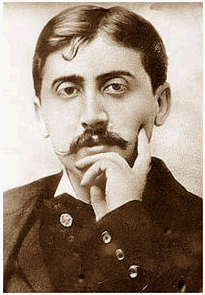 On this day in 1871, the intellectual, novelist and essayist Marcel Proust was born. One of the first European writers to treat homosexuality at length, Proust is best known for his novel, Remembrance of Things Past. André Gide was the first to point out that Proust made certain characters female when he meant them to be male in the novel. For example, the character of Albertina was really based on Proust’s own chauffeur-lover Alfred Agostinelli. The book was first translated into English by C. K. Scott-Moncrieff between 1922 and 1931 in a bowdlerized version that removed many of the sexual aspects of the work. The work was recently retranslated from authoritative French originals to recover what had been lost.
On this day in 1871, the intellectual, novelist and essayist Marcel Proust was born. One of the first European writers to treat homosexuality at length, Proust is best known for his novel, Remembrance of Things Past. André Gide was the first to point out that Proust made certain characters female when he meant them to be male in the novel. For example, the character of Albertina was really based on Proust’s own chauffeur-lover Alfred Agostinelli. The book was first translated into English by C. K. Scott-Moncrieff between 1922 and 1931 in a bowdlerized version that removed many of the sexual aspects of the work. The work was recently retranslated from authoritative French originals to recover what had been lost.TODAY’S GAY WISDOM
 In 2005 White Crane published a special themed issue, "Our Bodies, Our Selves" in tribute to the groundbreaking women’s health book of the same name. At the time, we invited Eric Rofes, author of numerous books, including Reviving the Tribe, to write an essay on health and Gay men’s lives. Rofes amazing article, Gay Bodies, Gay Selves: Understanding the Gay Men’s Health Movement can found seen in the archives of White Crane.
In 2005 White Crane published a special themed issue, "Our Bodies, Our Selves" in tribute to the groundbreaking women’s health book of the same name. At the time, we invited Eric Rofes, author of numerous books, including Reviving the Tribe, to write an essay on health and Gay men’s lives. Rofes amazing article, Gay Bodies, Gay Selves: Understanding the Gay Men’s Health Movement can found seen in the archives of White Crane. ~ ~ ~
This entry was also this day’s Gay Wisdom email.
Sign up today to get our emails on Gay History and Wisdom!
Fear the Gay Bomb
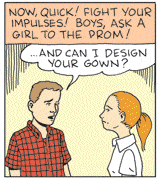 So much has been written about the Gay Bomb the pentagon was(?) working on.
So much has been written about the Gay Bomb the pentagon was(?) working on.
Ruben Bolling of Tom the Dancing Bug proves once again how insightful he can be.
Achilles & Patroclus
The last few hours have presented some crazy synchronicity I thought I’d share. But it involves some storytelling. And since I don’t usually feature a lot of storytelling I thought it might be good for the blog.
This morning Pete and I spent a few hours at two Farmers Markets. He’d been gone for a few days and it was great to have him home and beside me and just enjoying such a beautiful day in the city. We got home a few hours ago and I started roasting some garlic scape I picked up at the market and started reading the Sunday New York Times while Pete snoozed on the couch and finished reading Armistead Maupin’s latest book (which he enjoyed very much thank you very much snippy Washington Post reviewer). Earlier I’d been reading some from a two dollar edition of Aristotle I picked up down on Calvert County yesterday. My friend Kim and I had driven down for the day to the birthday party of a friend of her’s and stopped into a book sale.
So, this morning I began reading the Aristotle book — the introduction anyway, and I’d been reading about Aristotle and Alexander and the Greeks and Persians. It was in keeping with a strange and wonderful Achilles jag I’ve been in of late. It started a few months back when I attended a reading of three Irish poets at the National Geographic. 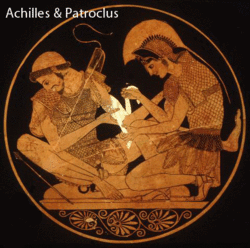 The reading was lovely and I especially enjoyed the work of Michael Longley, a living Irish poetic legend who was new to me (don’t you love it when you discover someone really good and you have the delight to immerse yourself?). One of the poems he recited, "Ceasefire" involved the interaction between Achilles and King Priam in the Iliad. The recent movie Troy (not surprisingly) destroyed the relationship between Achilles and Patroclus. A reading of the text shows they were lovers. Achilles kills Hector to avenge the death of his lover. He then makes arrangements to spend eternity with him… it’s all very clear in the Iliad. So, Longley’s poem — which is quite moving — describes the point when old King Priam comes into the enemy’s camp, to Achilles, (who remember has just killed Priam’s son Hector) and begs him for the body of his son Hector. Achilles agrees to give King Priam Hector’s body and then they sit for a meal together. I loved Longley’s poem very much. But I feel it lacked any real sense for the loss that Achilles had suffered at losing Patroclus. In Longley’s poem [read it here], Achilles is shown as a standup guy for giving Priam Hector’s body. But that’s about it. One would have to know the rest of the story to read into it the depth of Achilles’ clear loss as he too sits at the table with the father of the man who took his greatest love away.
The reading was lovely and I especially enjoyed the work of Michael Longley, a living Irish poetic legend who was new to me (don’t you love it when you discover someone really good and you have the delight to immerse yourself?). One of the poems he recited, "Ceasefire" involved the interaction between Achilles and King Priam in the Iliad. The recent movie Troy (not surprisingly) destroyed the relationship between Achilles and Patroclus. A reading of the text shows they were lovers. Achilles kills Hector to avenge the death of his lover. He then makes arrangements to spend eternity with him… it’s all very clear in the Iliad. So, Longley’s poem — which is quite moving — describes the point when old King Priam comes into the enemy’s camp, to Achilles, (who remember has just killed Priam’s son Hector) and begs him for the body of his son Hector. Achilles agrees to give King Priam Hector’s body and then they sit for a meal together. I loved Longley’s poem very much. But I feel it lacked any real sense for the loss that Achilles had suffered at losing Patroclus. In Longley’s poem [read it here], Achilles is shown as a standup guy for giving Priam Hector’s body. But that’s about it. One would have to know the rest of the story to read into it the depth of Achilles’ clear loss as he too sits at the table with the father of the man who took his greatest love away.
So, ever since that reading and hearing that poem I’ve had in the back of my head the desire to write a poem about that very thing. Perhaps a revisiting of that scene in a way that balances the wound and loss. I’m not saying that Priam was trying to erase anything. I think it’s just not his element and perhaps he wasn’t looking for it.
Then about a week ago the wonderful poet Jeff Mann submitted a few poems for the Fall issue of White Crane on "Lovers." One of them is about Achilles and Patroclus although it takes place before the battle where Patroclus dies. Reading the poem sort of revived the task I’d set before myself from Longley’s poem. A few days later I woke up in the middle of the night and tossing and turning I thought of a few lines that were clearly about this idea. I reached for  paper and pen, which is always beside the bed, and I wrote the lines down. The next morning I read them again and they were in my head for the rest of the day.
paper and pen, which is always beside the bed, and I wrote the lines down. The next morning I read them again and they were in my head for the rest of the day.
Later Pete and I went down to Eastern Market to see what we could see and ran into some lovely apricot-colored yarrow for the garden. The color was just beautiful and different from the yellow colored yarrow you usually see. We picked up a nice bit of it to put in the front garden and placed it in its new place when we got home.
Later that night I went online and started looking up information about yarrow and was stunned to find that the scientific name for yarrow. It’s achillea millefolium. There’s Achilles again. Something’s going on.
Back to today and I’m reading Aristotle and it’s welling up the Greeks and the lovers and the wonderful day we spent out in the beautiful weather and with my love of life and how much I’ve missed him the last few days. I went and wrote the following:
Shall I make us Greek
Because they recorded the names of people like us?
Patrocles and Achilles?
Alexander and Haphaestion?
Hadrian and Antinous?
Ignoring their slaves and empire?
Shall I invoke the names of whispers?
The Lovers that are clear to us
Beyond the burned letters and evasions?
David and Jonathan?
Whitman and Doyle?
Dali and Lorca?Every choice will involve a fight with our enemies
Who have always held erasers in their hands
To wipe away any trace of us.Will there be a trace of us?
Must there be a haunting line in every sweet day
That ages hence no one will remember us
Or remember that men like us knew this kind of love?I should bow and genuflect
At the mere ability to have these days,
To have these moments of truth and gentleness,
I cannot risk the historic,
Or imagine truth as some grander gesture.The simple act of our loving
Is the simplest action of self love.
 And then I left it alone. I left it on the screen and went back to reading the paper. The war, the local news, and then a story from New Jersey [read it here] over the weekend. About a boy who paid, like many of his other friends, to have pictures of a kiss, just like everyone else, in his yearbook. And the magic marker and the erasure. And the superintendent claiming she stands for "tolerance" when she orders teachers, (TEACHERS! Teachers who are to "teach"!) to take the stink of black magic markers to the same image on the same page in over 300 copies of a high school yearbook and erase the offending image of two boys who love each other and share a kiss.
And then I left it alone. I left it on the screen and went back to reading the paper. The war, the local news, and then a story from New Jersey [read it here] over the weekend. About a boy who paid, like many of his other friends, to have pictures of a kiss, just like everyone else, in his yearbook. And the magic marker and the erasure. And the superintendent claiming she stands for "tolerance" when she orders teachers, (TEACHERS! Teachers who are to "teach"!) to take the stink of black magic markers to the same image on the same page in over 300 copies of a high school yearbook and erase the offending image of two boys who love each other and share a kiss.
I put the story aside and after I’ve finished reading the paper I carry it over to show it to Pete who’s in the living room and I pass the laptop with the poem on it. And there it is today. Achilles and Patroclus and Andre and David and yes, Pete and me.
